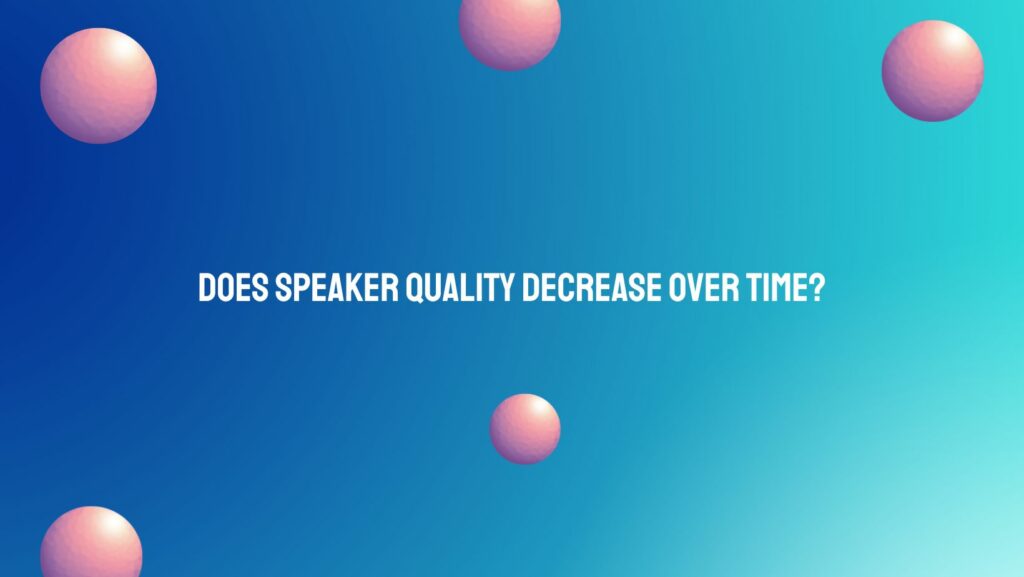Speakers are integral components of audio systems, responsible for delivering immersive sound experiences across various media platforms. Over time, concerns may arise about the longevity and performance of speakers, leading to questions about whether speaker quality decreases with age. In this article, we’ll explore the factors influencing speaker longevity and whether speaker quality truly diminishes over time.
Understanding Speaker Components: To assess the potential decrease in speaker quality over time, it’s crucial to understand the key components that comprise a speaker system. These components include drivers (woofers, tweeters, and midrange), crossover networks, enclosures, and speaker surrounds. Each component contributes to the overall performance and durability of the speaker.
Mechanical Wear and Tear: One factor that can impact speaker quality over time is mechanical wear and tear. Continuous usage and exposure to environmental factors such as temperature fluctuations, humidity, and dust can gradually degrade speaker components. The deterioration of speaker surrounds, deterioration of voice coils, and weakening of suspension materials can affect sound reproduction and overall performance.
Degradation of Materials: Materials used in speaker construction, such as rubber surrounds, foam surrounds, and paper cones, may degrade over time due to exposure to UV radiation, moisture, and atmospheric pollutants. The deterioration of these materials can lead to changes in speaker compliance, damping characteristics, and frequency response, resulting in a perceived decrease in sound quality.
Environmental Factors: Environmental conditions play a significant role in determining the longevity and performance of speakers. Speakers exposed to harsh environmental conditions, such as excessive heat, humidity, or direct sunlight, are more susceptible to deterioration and degradation of materials. Proper speaker placement, storage, and maintenance can mitigate the impact of environmental factors and prolong speaker lifespan.
Electronic Components: In addition to mechanical wear and tear, electronic components within speakers, such as capacitors, resistors, and crossover networks, may experience degradation over time. Factors such as component aging, thermal stress, and electrical surges can compromise the performance and reliability of electronic components, leading to changes in sound quality and fidelity.
Maintenance and Care: Regular maintenance and care are essential for preserving speaker quality and performance over time. Periodic cleaning, inspection, and maintenance of speaker components can help prevent dust buildup, corrosion, and mechanical issues. Proper storage, handling, and usage practices can also contribute to the longevity and reliability of speakers.
Conclusion: While concerns about speaker quality decreasing over time are valid, they are often exaggerated or misconstrued. The lifespan and performance of speakers depend on various factors, including design, construction quality, environmental conditions, and maintenance practices. While speakers may experience gradual degradation and wear over time, proper care and maintenance can mitigate these effects and prolong their lifespan. By understanding the factors influencing speaker longevity and implementing sound maintenance practices, audio enthusiasts can enjoy high-quality sound reproduction from their speakers for years to come.


